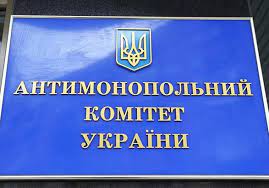
The Antimonopoly Committee of Ukraine (AMCU) has set the transfer of 25-28% of shares in PrJSC Dickergoff Cement Ukraine to an independent investor as a condition for CRH to buy two Buzzi cement plants, the committee’s website reports.
As reported, in June 2023, the Italian cement producer Buzzi, listed by the National Agency for the Prevention of Corruption as an international war sponsor, through its subsidiary Dyckerhoff GmbH, reached an agreement to sell part of its Eastern European business to the Irish CRH group, including Ukrainian assets in the form of two cement plants – Volyn Cement (Zdolbuniv, Rivne region) and Pivden Cement (Vilshanske, Mykolaiv region).
The AMC has been considering CRH’s application for concentration since September 2023.
According to the published terms, CRH must, within nine months from the date of the announced concentration, sell or otherwise transfer shares (stakes) in the amount of 25% to 28% of the authorized capital to a third party not related to CRH UKRAINE B.V. with veto rights (to ensure blocking of key management decisions of the supreme management body of the holding company). It is expected that the European Bank for Reconstruction and Development will become such an investor, as in December 2023 CRH signed a mandate letter with the EBRD on the joint acquisition of the assets of the Italian company Buzzi in Ukraine.
In addition, CRH will also be obliged to report regularly to the AMCU for five years, in particular, on production volumes and selling prices in the domestic market.
It is expected that CRH will invest in the acquired plants, expanding and modernizing their production facilities, preserving jobs and improving working conditions for employees.
As reported, in 2023, the total volume of cement produced in Ukraine increased by 37% year-on-year to 7.4 million tons. In January-March 2024, the companies that are members of the Ukrcement association increased their cement production by 46.3% compared to the same period in 2023, up to 1 million 477.9 thousand tons of cement.
According to the Ukrcement Association, Ukraine’s cement production potential is currently 13.6 million tons of cement, while current financial and human resources suggest consumption of 12.5 million tons. He believes that despite the ability of Ukrainian enterprises to fully cover the market’s needs, it makes sense to plan to expand production.
According to Valeriy Korbut, director of Khmelnitskzalizobeton, one of Ukraine’s largest reinforced concrete plants, investments and modernization of enterprises always increase competition in the market. This, in turn, makes the product better and more affordable. That is why it is important to attract investments in the cement industry today to be ready for recovery.
Viktor Hushel, Commercial Director of Budindustriya-1, a concrete producer, states that, with a focus on recovery projects, it is necessary to invest in cement production right now.
CRH has been operating in Ukraine since 1999. Since November 2021, its cement enterprises in Ukraine have been operating under the Cemark brand: Podilskyi Cement JSC (Khmelnytskyi region), Cement LLC (Odesa), and Mykolaivcement PrJSC (Lviv region).
CRH’s separate business in Ukraine is the production of concrete and reinforced concrete products. PoliBeton Energo’s Bila Tserkva concrete goods plant is a specialized enterprise that produces power transmission towers. PoliBeton’s concrete hub in the north of Odesa was included in the CRH 2020.
Since 1999, the company has invested about $500 million in Ukraine. In particular, since the beginning of the full-scale invasion, CRH has invested $80 million, including $34 million in the construction of a cement terminal in Kyiv region.
CRH is the world’s leading manufacturer of building materials. The company employs about 71,000 people at its 3,200 facilities in 28 countries. It is the largest building materials producer in North America and Europe. The company is also represented in Asia. CRH American depositary shares are listed on the New York Stock Exchange.

The Antimonopoly Committee of Ukraine has granted Kovalska Real Estate LLC permission to acquire a stake in the authorized capital of Kudryavsky Administrative and Warehouse Complex LLC, the agency’s website reports.
The Ministry made the decision on Thursday.
According to the report, Kovalska Real Estate LLC received permission to acquire a stake in ASC Kudryavsky, which ensures that the company’s supreme management body exceeds 50% of the votes.
According to Opendatabot, the owners of Kudryavsky JSIC are Atlas Mutual Fund (50%) and AMC Ukrainian Investment Society (50%), with Bohdan Serotiuk and Yuriy Sokolnytsky listed as the ultimate beneficiaries.
Kovalska Real Estate LLC is part of the Kovalska group and is engaged in residential construction. Its portfolio includes more than 20 completed residential projects.
As reported, in 2021, Kovalska Group announced its intention to revitalize the territory of the Kyiv Distillery in the Shevchenkivskyi district of Kyiv at 16A Kudriavska Street. The plant covers an area of about 2 hectares. Its buildings built in 1896 are recognized as an architectural monument of local significance, and the facade is under protection.
Kovalska Industrial and Construction Group has been operating in the Ukrainian construction market since 1956. It unites more than 20 enterprises in the field of raw materials extraction, production and construction. Its products are represented by the brands Concrete by Kovalska, Avenue, and Siltek. Kovalska’s enterprises operate in Kyiv, Zhytomyr, Lviv, and Chernihiv regions. The aerated concrete plant in Kherson region has not been operating since the beginning of the occupation.

The Antimonopoly Committee of Ukraine (AMCU) has fined Tairove Vineri LLC for the unlawful use of the Prosecco designation, which was previously used by members of the Consortium for the Protection of the Name of a Controlled Enterprise Consortium for the Protection of the Name of a Controlled Enterprise (Italy).
“The Committee initiated the case at the request of the Consortium for the Protection of the Name of the Controlled Enterprise Prosecco, whose members export wine products under this designation to the territory of Ukraine,” the agency said in a statement.
According to the report, Tairovo Winery LLC began using the Prosecco designation in labeling its own wine products later than the Consortium members and without obtaining their consent.
According to the AMCU, such actions could lead to confusion of Tairovo Vaineri LLC’s activities with those of the Italian consortium members and provide unfair competitive advantages by using the business reputation of such members. This is evidenced by the results of a consumer survey conducted by the AMCU.
The Committee considered the actions of Tairo Vaineri LLC as a violation of Article 4 of the Law “On Protection against Unfair Competition” and fined it UAH 946,909.

The Antimonopoly Committee of Ukraine (AMCU) has fined Zdorovye Pharmaceutical Company (Kharkiv) for unlawful use of the packaging design of the drug Panthenol Plus, which is similar to the packaging design of the drug Bepanten Plus used by Bayer LLC.
According to the AMCU, the pharmaceutical company “Zdorovye” was fined UAH 719.348 thousand.
According to Bayer, the design of the package of the drug Panthenol Plus is similar to the design of the package of Bepanten Plus to the extent of mixing, and Bayer did not grant permission to use a similar design of the package of Bepanten Plus.
AMCU, Antimonopoly Committee of Ukraine (, Bayer LLC., Bepanten Plus, Panthenol Plus, Zdorovye Pharmaceutical Company

The Antimonopoly Committee of Ukraine has granted permission to MasterCard Europe S.A. and Visa International Service Association to reduce the amount of domestic interchange fees (interchange rate) paid by an acquirer to an issuer in Ukraine from 0.9% to 0.7% for the period of war.
“The planned changes in concerted actions are aimed at establishing an effective and balanced ceiling on interchange rates, taking into account the interests of all market participants under martial law,” the AMC commented on its decision of 5 October.
The Committee expects that these changes will allow retail chains to maintain the current price level for consumers, as well as contribute to the development of small and medium-sized entrepreneurs and the overall economic development of Ukraine.
The agency clarified that the 0.7% rate will be effective “not earlier than the next business day after 14 calendar days after the date of receipt of the Committee’s authorization until the next business day after 30 calendar days from the date of termination or cancellation of martial law.”
It is noted that after this period, MasterCard and Visa will return to the 0.9% rate agreed with the AMCU before the war.
“The introduction of a further reduction in the interbank commission is an attempt by government agencies and other industry representatives to respond to a request for assistance to retailers who have suffered significant economic losses caused by the war,” the AMCU said.
As reported, a memorandum signed in May 2021 between MasterCard, Visa and the NBU provided for the interchange rate to be set at 1.2% from July 1, 2021, and its gradual reduction, in particular from July 1, 2023, from 1% to 0.9%.
However, during the war, the rate was first reset to zero and then gradually increased to 0.7%. The decision of Visa and MasterCard to return it to 0.9% on July 1 this year was sharply criticized by retailers. The largest banks in the market – PrivatBank, Oschadbank and Raiffeisen Bank – for their part, kept acquiring rates for their clients unchanged (approximately 1.3-1.5%), but called on MasterCard and Visa to support this initiative and cancel the interchange rate increase from July 1, 2023 to 0.9%.
However, Oschadbank noted that “if payment systems do not reduce the interchange rate within one to two months, the bank will reconsider its decision.”
According to the NBU, the share of payment terminals of PrivatBank, Oschadbank and Raiffeisen Bank at the beginning of the year was 60.4%, 19.6% and 7.6%, respectively.

The Antimonopoly Committee of Ukraine (AMCU) has found Ukrspetspostavka LLC, Finance-Service Plus LLC and Glermont Trade LLC guilty of anticompetitive actions that distorted the results of the auction for the privatization of distilleries and fined them UAH 14.39 million.
According to the Committee’s press service, the auction was for the sale of certain property of the Zalozetsky alcohol production and storage site of the State Enterprise Ukrspyrt, which was conducted by the regional department of the State Property Fund of Ukraine in Ivano-Frankivsk, Chernivtsi and Ternopil regions. The amount of the contract concluded as a result of the auction was UAH 96.012 million (including VAT).
“During the investigation of the case, the Committee identified circumstances that, taken together, indicated that the above-mentioned business entities had committed concerted actions aimed at eliminating competition between them during the auction. In particular, this refers to such evidence as the defendants’ joint business activities, communication between them, exchange of information, etc.”, the AMCU explained.
The defendants were fined UAH 14,390,798 for the violation provided for in clause 4, part 2, article 6 and clause 1, article 50 of the Law “On Protection of Economic Competition” (anticompetitive concerted actions related to the distortion of auction results), as well as for collusion at the auction for the sale of state property.